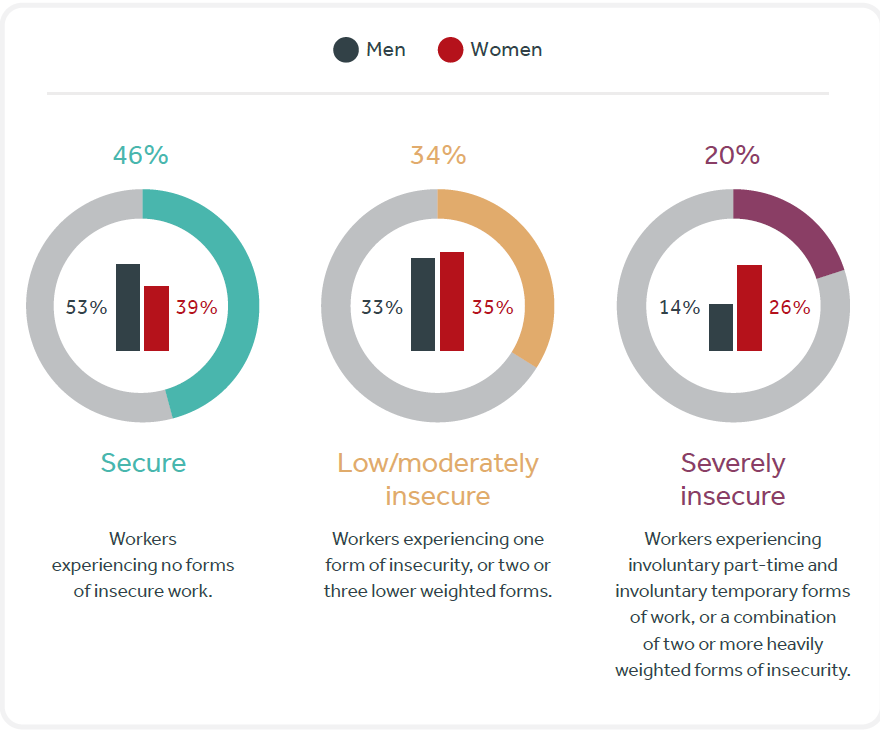The Gender Gap: Insecure work in the UK
Posted on

New analysis of UK labour market data reveals that working women are nearly twice as likely (1.8 times) as men to be in severely insecure work – and the situation worsens for mothers, disabled women, and women from Black, Pakistani and Bangladeshi backgrounds.
This new research uses the Work Foundation’s UK Insecure Work Index, which combines three elements that constitute insecurity at work – employment contracts, personal finances and access to workers’ rights, to identify a substantial gender insecurity gap. This is concerning, as particularly when several forms of insecurity come together, termed ‘severely insecure work’, may affect women’s health and wellbeing as well as their prospects for obtaining secure work.
This new analysis estimates that 26% of working women (3.9 million) are currently in severely insecure work in the UK, compared to 14% of working men. This inequality is reflected at all levels, with even women in the most senior positions twice as likely as men to experience severely insecure work (9.2% compared with 4.5%).
Figure 1: gender insecurity gap, 2022

Source: Work Foundation calculations of the Office for National Statistics Labour Force Survey –
April-June 2022.
Furthermore, groups of women who face structural barriers to entering and staying in work are also disproportionately more likely to be in insecure roles. This research finds that:
- working mothers with young children are 2.7 times more likely than fathers to experience severely insecure work (30.4% compared with 11.2%)
- women from Black, Pakistani and Bangladeshi backgrounds are between 4.8 and 9.3 percentage points more likely than white women to experience severely insecure work (30.3%, 34.7% and 34.8% respectively compared with 25.5% for white women)
- disabled women are 5.2 percentage points more likely than non-disabled women to experience severely insecure work (30.2% compared with 25%).
This briefing sets out policy recommendations to improve job security and embed flexibility in all roles, with the aim to foster greater gender equality in the labour market. We make detailed suggestions for short-term action to:
- reform Universal Credit by extending work allowances to all workers and offer greater support to working women in severely insecure work, who are hard hit by the cost of living crisis.
For the longer term, we propose to:
- review and reform Statutory Sick Pay and Universal Credit to enhance the capacity of the UK’s safety net for workers
- enhance the provision of affordable childcare and improve the interaction of Universal Credit with childcare costs
- make flexible working available to both men and women from day one at work
- build on and expand instruments such as mandatory pay gap reporting to enlarge its impact.
Related Reports
Back to report listing




